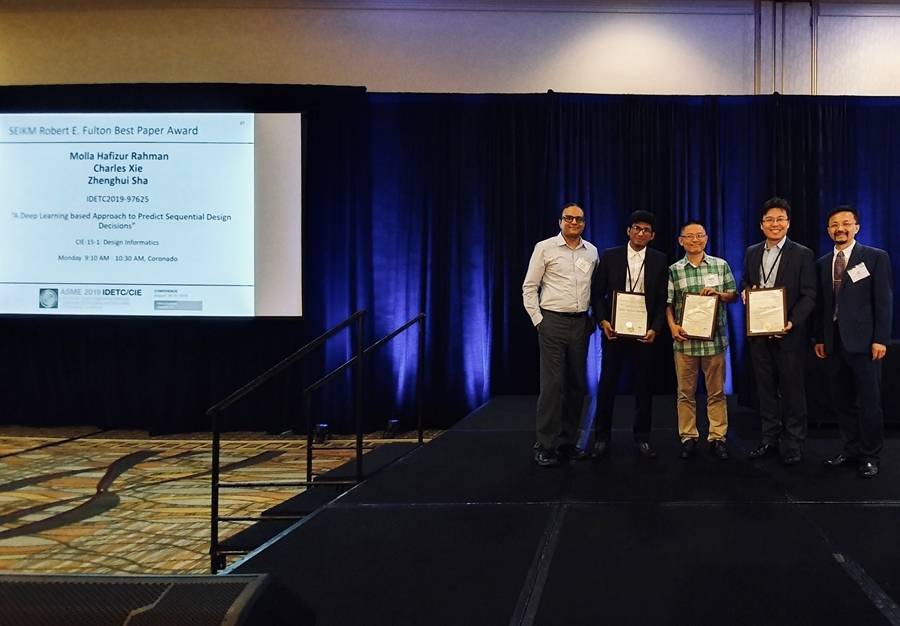
A mechanical engineering faculty member and doctoral student took top honors in their field for research into how deep learning approaches can be used to model and predict human decisions in engineering systems design.
Zhenghui Sha, assistant professor of mechanical engineering, and doctoral student Molla Hafizur Rahman, along with Charles Xie, a senior scientist from the Concord Consortium, earned the Robert E. Fulton Best Paper Award from the Computers and Information in Engineering Division of the American Society of Mechanical Engineering.
They received the award at the 39th ASME CIE Conference in Anaheim, California, August 20.
The team's research focuses on helping machines learn designers' sequential decision-making strategies to mimic how humans use both short-term and long-term memory in solving engineering design problems. Engineering design involves completing several iterations of an idea, all within the specific constraints of a project.
Sha and Rahman's research aims to computationally model and predict human designers' decision-making in the context of engineering systems design.
The team developed a deep-learning based approach using a recurrent neural network, a type of artificial neural network that mimics the human brain. Artificial neural networks have been proven effective in fields including language processing, healthcare and image recognition, but sequential design decisions have unique characteristics and are significantly different from other sequential data. Researchers do not yet fully know the capability of artificial neural networks in the field.
Researchers used the design of a solar energy system as a case study, and their results showed the new approach outperformed traditional models.
Rahman said the award inspired him to keep up his research momentum.
"I am truly thrilled and honored to receive this prestigious award from ASME," he said. "It encourages me to do better in my research. It is also important to my Ph.D. career as it lays the foundation for my dissertation research on computational modeling of human sequential decision-making in engineering design."
Sha said the research was critical for advancing his team's goals related to artificial intelligence in design.
"The study presented in this paper lays the foundation for our research goal of achieving efficient and effective Human-AI design collaboration and AI-Assisted Computer-Aided Design (CAD) of the future," he said.
Topics
Contacts
Nick DeMoss, director of communications
College of Engineering
479-575-5697, ndemoss@uark.edu